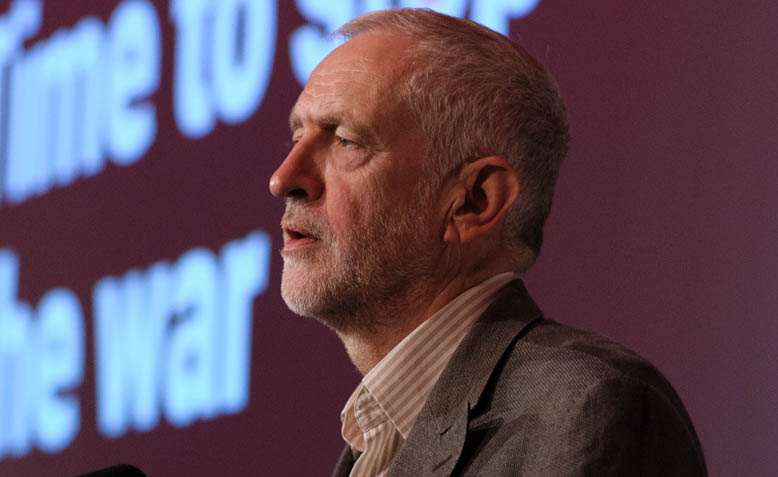 Jeremy Corbyn speaking at '15 Years On: Time To Stop The War', October 2016. Photo: Jim Aindow
Jeremy Corbyn speaking at '15 Years On: Time To Stop The War', October 2016. Photo: Jim Aindow
We can’t let the most radical leadership in Labour’s history find themselves fighting on the side of free trade, argues Reuben Bard-Rosenberg
To all socialists at conference – regardless of how you voted in 2016 – I urge you not to commit the Labour Party to a second referendum on Brexit.
I’m not going to speculate about the electoral impact of the different choices on offer. What I will say is that the result of the next election will not simply be determined on polling day.
Even in the event of a Labour landslide, parliament will, unfortunately, continue to be populated by a great many pro-free market politicians sitting amongst the ranks of all the major parties. And yet there is a mood in the country that looks difficult to contain within the consensus that binds the political establishment. British society is polarised over questions of social and economic justice to an extent not seen since the Miners’ strike. And this is something that looks capable of making a crack in the wall around Westminster. What matters, therefore, is not simply whether Labour win the next election, but how they fight it.
If Labour commits to a second referendum, then this issue will become the bread and butter of party politics between now and May 2020. We will watch the most radical Labour leadership in history spend the next two years fighting the Tories over our relationship to a neo-liberal trading bloc, arm in arm with Gina Miller and Alistair Campbell and on the same side as the bulk of the British business class. It will empower those elements of the Labour Party – the Tom Watsons and the Chuka Umunnas – who want to return Labour to its pre-Corbyn identity: as a party defined by vague notions of openness and modernism, rather than by its radical positions on who holds power and who gets what.
By contrast, if the Labour leadership can continue to give voice, first and foremost, to the widespread desire for a far more equal society; if it can fight and win the next election on a radical programme of social and economic justice, then the basic co-ordinates of British politics will continue to shift. The large section of the PLP that would be more at home in the Liberal Democrats will be faced with a tremendous mandate for Corbyn’s radical egalitarian leadership. The general election – that short period every few years wherein it is acceptable to knock on someone’s door and talk to them about politics – will be an opportunity to talk to people about jobs, wages, public utilities, control of industry and zero hours contracts.
There are some who see our connection with Europe as so valuable that it is vital, on principle, to defend it. As a socialist, I respectfully disagree. Free markets are enshrined in the EU’s DNA. European state aid laws place stringent limits on government intervention, and the stability and growth pact limits deficit spending. Europe’s unelected trade commissioners perpetually push unfettered competition in a global marketplace increasingly shaped by the sweatshop-export economies. It was not Europe that brought a limited working week and anti-discrimination legislation to Britain, but the trade unions. I respect those who believe that another Europe is possible. Yet the Europe that exists right now, and which looks likely to exist in the future, is not a great cause worthy of Labour’s radical leadership.

